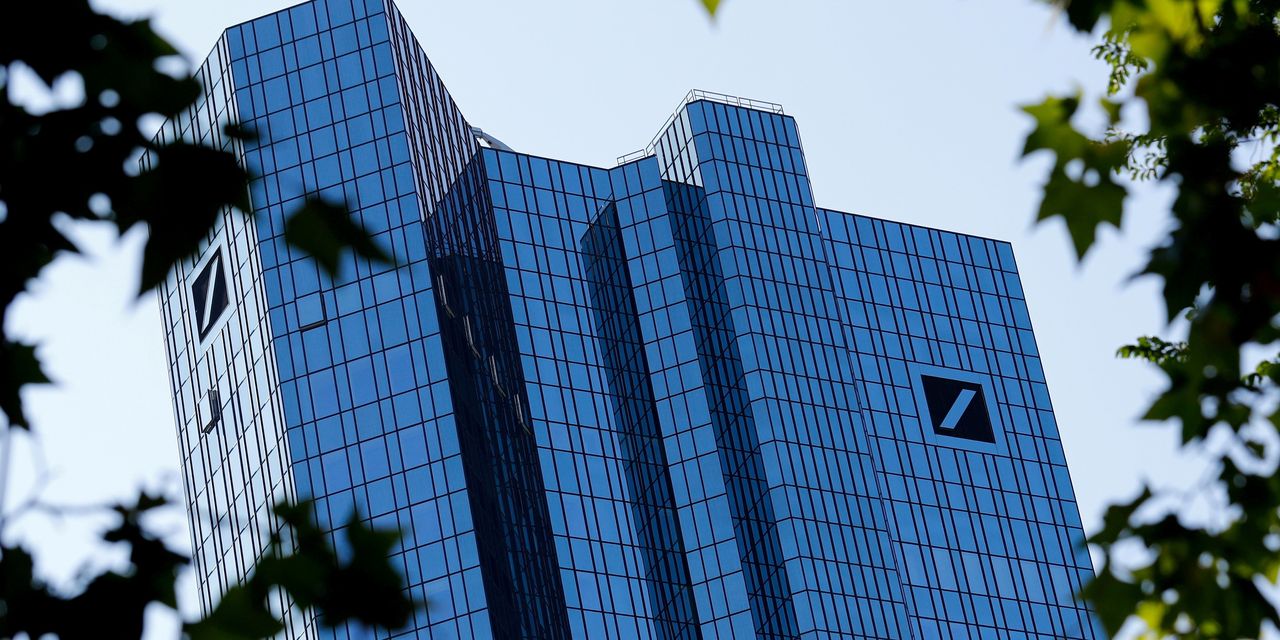
Deutsche Bank AG DB -0.87% was fined nearly $10 million by Germany’s financial regulator on Wednesday for not having strong enough controls around data submissions that help set a European interest-rate benchmark.
Deutsche Bank “at times did not have in place effective preventive systems, controls and policies to ensure the integrity and reliability of all contributions of input data to the administrator,” the regulator, BaFin, said.
The weaknesses found by BaFin related to Euribor submissions in a 2019-2020 time period, according to a person familiar with the matter.
Deutsche Bank said there is no indication it actually submitted any incorrect data, and that it is taking measures to improve the controls. The bank said it wouldn’t contest the fine, which was €8.66 million, equivalent to nearly $10 million.
“It remains a top priority for us to identify and address potential weaknesses in our control processes,” a Deutsche Bank spokesman said.
The penalty revives one of the darkest chapters for Germany’s biggest bank by assets. Last decade, Deutsche Bank paid around $3.5 billion to settle allegations by U.S., U.K. and European authorities that its traders for years manipulated Euribor and other global interest-rate benchmarks. It was the most heavily fined bank over the rate rigging, and has since sought to improve its culture and systems to prevent any repeats.
The Wall Street Journal previously reported that a whistleblower who helped U.S. and U.K. regulators investigate rate manipulation at Deutsche Bank received nearly $200 million for assisting that probe.
A series of Journal articles in 2008 raised questions about whether global banks were manipulating the interest-rate-setting process by lowballing a key interest rate to avoid looking desperate for cash amid the financial crisis.
Regulators investigated, and found traders at banks and brokers for years conspired to manipulate benchmark rates. The rates are set based on oral submissions by banks and not on actual transactions.
Like other banks, Deutsche Bank was accused of letting employees nudge rates up or down slightly to benefit their trading positions. The practice was harmful, authorities say, because the rate benchmarks are used to determine interest paid on everything from mortgages to corporate loans to complex financial derivatives. The most widely used rate, Libor, is in the process of being replaced.
Write to Margot Patrick at [email protected]
Copyright ©2021 Dow Jones & Company, Inc. All Rights Reserved. 87990cbe856818d5eddac44c7b1cdeb8
Appeared in the December 30, 2021, print edition as ‘Deutsche Bank Pays Fine for Lapses on Rate Data.’








